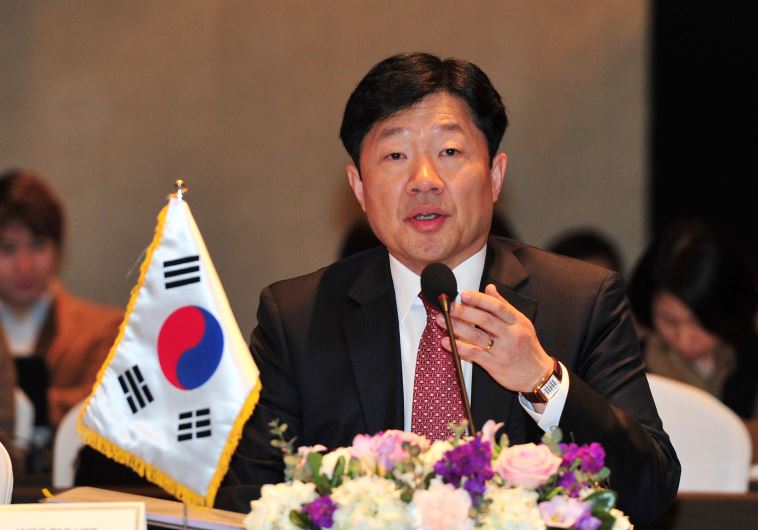South Korean officials visit Iran to seek post-sanction deals
South Korean deputy trade minister Woo Tae-hee among delegation set to visit Islamic nation on Sunday and Monday.
 South Korean deputy trade minister Woo Tae-Hee(photo credit: JUNG YEON-JE/AFP)
South Korean deputy trade minister Woo Tae-Hee(photo credit: JUNG YEON-JE/AFP)